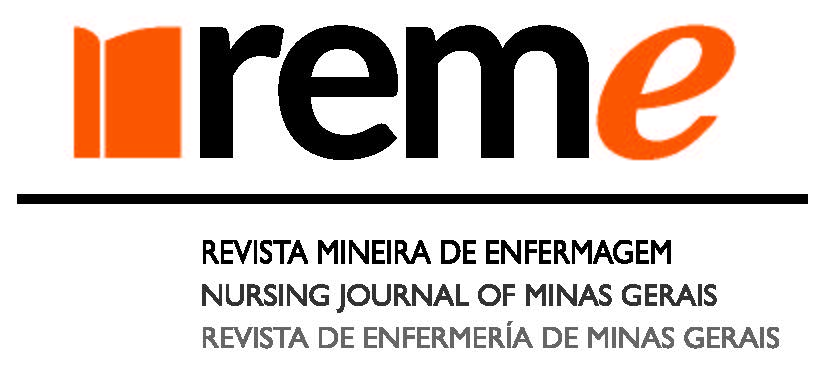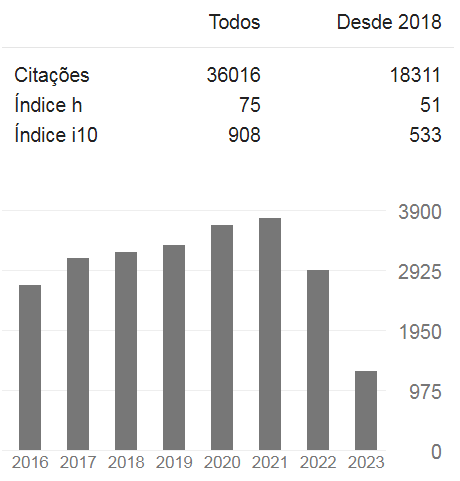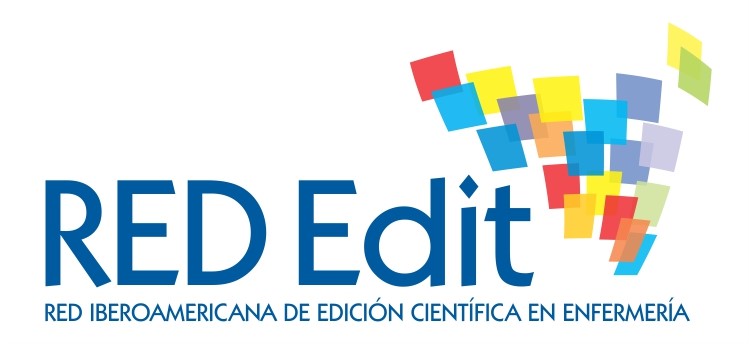Discourses of health courses on gender and biotechnologies in the context of training
DOI:
https://doi.org/10.35699/2316-9389.2022.38478Keywords:
Gender Identity, Biotechnology, EducationAbstract
Objective: to investigate the discourses on gender and biotechnologies within the training of health courses. Methodology: this is a qualitative, exploratory, and descriptive study that is based on a larger study - a research project - developed by the Studies and Research Group in Health (GEPS), entitled “Gender and Biotechnologies: Interfaces between discourses and institutions in the training of students from health courses.” The research took place between March and October 2019 and was carried out through semi-structured interviews with Brazilian and Spanish health students, audio-recorded, and transcribed for Discourse Analysis. Results and Discussion: the findings indicate that Gender and Biotechnology are themes that do not subsidize the discussions of the training of future health professionals, showing an understanding of gender centered on a binary norm, with no space for other identity possibilities besides heterosexuality being seen as a standard of behavior to be followed. A certain complexity is perceived in the formulation of the students’ speeches regarding the aspects in which gender and biotechnologies escape from the relationship between the biological body and the technological use for these physical and mental frameworks. Final Considerations: the discussions about gender and biotechnologies in the studied universities have been carried out in an isolated way, making it necessary to restructure their curricula so that the themes presented can be contemplated to effectively compose the equitable and integral formation of professionals.
Downloads
References
Oliveira KH. Intense Encounters: Michel Foucault, Judith Butler, Paul B. Preciado, and the Queer Theory. Rev. Estud. Fem [citado em 2022 jan. 10]2021;29(1):e67637. Disponível em: https://www.scielo.br/j/ref/a/f8xM5gZFZxn9yZwxZbxd8Tt/?lang=pt
Rocon PC, Sodré F, Rodrigues A, Barros MEB, Pinto GSS, Roseiro MCFB. Vidas após a cirurgia de redesignação sexual: sentidos produzidos para gênero e transexualidade. Ciênc. saúde coletiva [citado em 2020 dez. 14]2020;25(6):2374-2356. Disponível em: https://www.scielo.br/j/csc/a/4sX9R9TRSNk4hzdC8dwrsQb/?lang=pt
Foucault M. A arqueologia do saber. Rio de Janeiro: Forense Universitária, 2005.
Ortega F. Corporeality, Medical Technologies and Contemporary Culture. London: Routledge, 2014.
Rose N. The politics of life itself: biomedicine, power, and subjectivity in the twenty- first century. Princeton: Princeton University Press, 2007.
Oliveira I, Romanini M. (Re)escrevendo roteiros (in)visíveis: a trajetória de mulheres transgênero nas políticas públicas de saúde. Saúde Soc [citado em 2020 dez. 14]2020;29(1). Disponível em: https://www.scielo.br/scielo.php?pid=S0104-12902020000100300&script=sci_arttext
Brasil. Resolução n. 466 de 12 de dezembro de 2012[citado em 2020 dez. 18]. Disponível em: https://bvsms.saude.gov.br/bvs/saudelegis/cns/2013/res0466_12_12_2012.html
Lisboa, FFL, Baptista MM. Estudos culturais e interfaces: objetos, metodologias e desenhos de investigação - Aveiro: Universidade de Aveiro, Programa Doutoral em Estudos Culturais. Santa Maria: UFSM, Programa de Pós Graduação em Comunicação, 2016[citado em 2020 nov. 21]. Disponível em: www.ufsm.br/estudosculturais ISBN 978-989-20-6719-3
Petry AR. Mulheres transexuais e o processo transexualizador: experiências de sujeição, padecimento e prazer na adequação do corpo. Revista Gaúcha de Enfermagem. [citado em 2020 dez. 14]2015;36(2):70-75. Disponível em: https://seer.ufrgs.br/RevistaGauchadeenfermagem/article/view/50158
Marquez CF, Vinhas LI. Heteronormativity and dominant ideology: the refusal of the song “Parabéns” by singer Pablo Vittar. Revista Periódicus. 2021;2(16):143-154. [citado em 2021 nov. 20]. Disponível em: https://periodicos.ufba.br/index.php/revistaperiodicus/article/view/37082/25321
Gonçalves VO, Pereira H. I’m Black, I’m Gay, and I Have Mental Illness”: Intersections in Portuguese Newspapers. Rev. Estud. Fem. 2021;29(2):1-15[citado em 2021 nov. 22]. Disponível em: https://www.scielo.br/j/ref/a/YcLPcRGbkQ7RRgXddqdYQyB/abstract/?lang=pt
Garcia AM, D’Angelo LB. Corpos Trans na Medida Socioeducativa de Internação: Desestabilizando Práticas e Produzindo Novidades. Psicol Ciênc Prof. [citado em 2020 dez. 14]2019;39(3):242-256. Disponível em: https://www.scielo.br/scielo.php?script=sci_arttext&pid=S1414-98932019000700317
Brasil. Portaria Nº 2.836, de 1º de dezembro de 2011. Institui, no âmbito do Sistema Único de Saúde (SUS), a Política Nacional de Saúde Integral de Lésbicas, Gays, Bissexuais, Travestis e Transexuais (Política Nacional de Saúde Integral LGBT). Diário Oficial da União. 2011 Nov 7; p. 45.[citado em 2020 dez. 15] Disponível em: http://bvsms.saude.gov.br/bvs/saudelegis/gm/2011/prt2836_01_12_2011.html
Brasil. Portaria 2803 de 19 de novembro de 2013. Redefine e amplia o Processo Transexualizador no Sistema Único de Saúde (SUS). Diário Oficial da União. 2013 Nov 21; p. 25. [citado em 2020 nov. 22] Disponível em: http://bvsms.saude.gov.br/bvs/saudelegis/gm/2013/prt2803_19_11_2013.html
Espanha. Núm. 6730. Diari Oficial de la Generalitat de Catalunya. 2014 Out 17. [citado em 2020 dez. 20] Disponível em: https://dogc.gencat.cat/ca/inici
Rose N. Biopolítica molecular, ética somática e o espírito do biocapital. In: Santos LHS, Ribeiro PRCR, organizadores. Corpo, gênero e sexualidade: instâncias e práticas de produção nas políticas da própria vida. Rio Grande: FURG, 2011. p. 13-32.
Rosa AS, et al. Biotecnologias em saúde, risoterapeutas e profissionais de Enfermagem: limites e possibilidades de atuação conjunta. Revista Interdisciplinar de Promoção da Saúde. 2021;4(1):1-12. [citado em 2021 nov. 20] Disponível em: https://online.unisc.br/seer/index.php/ripsunisc/article/view/16635
Petry AR, Somavilla VEC. A exortação do discurso de risco e a coleta autóloga de células tronco do cordão umbilical. Text Contex [UFSC Impresso]. 2016;3:2-8. [citado em 2020 dez. 12] Disponível em: https://www.scielo.br/scielo.php?pid=S0104-07072017000300323&script=sci_abstract&tlng=pt
Raimondi GA, Moreira C, Barros NF. Gêneros e sexualidades na educação médica: entre o currículo oculto e a integralidade do cuidado. Saud e soc. [citado em 2020 Dez. 14]2019;28(3):198-209. Disponível em: https://www.scielo.br/scielo.php?script=sci_arttext&pid=S0104-12902019000300198
Santos MA, Souza RS, Lara LAS, Risk EM, Oliveira WA, Alexandre V, et al. Transexualidade, ordem médica e política de saúde: controle normativo do processo transexualizador no Brasil. Est Inter Psicol. [citado em 2020 dez. 14]2019;10(1):3-9. Disponível em: http://pepsic.bvsalud.org/scielo.php?script=sci_arttext&pid=S2236-64072019000100002
Galindo D, Rodrigues RV, Lemos FCS, Almeida LCCS. Biotecnologias, subjetivação e psicologias: mercado de células-tronco do cordão umbilical. Psicol Soc. [citado em 2018 set. 10]2017;29:e148056. Disponível em: http://dx.doi.org/10.1590/1807-0310/2017v29148056
Hüning SM. A psicologia na rede das novas biotecnologias. In: Guareschi NMF et al. (Orgs.). Psicologia, formação, política e produção em saúde. Porto Alegre: EDIPUCRS, 2014.
Butler J. Corpos em aliança e a política das ruas: notas para uma teoria performativa de assembleia. Miguens FS, tradução; Rodrigues C, revisão. Rio de Janeiro: Civilização Brasileira; 2018.
Butler J. Problemas de gênero: feminismo e subversão da identidade. Rio de Janeiro: Civilização Brasileira; 2014.
Additional Files
Published
How to Cite
Issue
Section
License
Copyright (c) 2022 REME-Revista Mineira de Enfermagem

This work is licensed under a Creative Commons Attribution 4.0 International License.






































